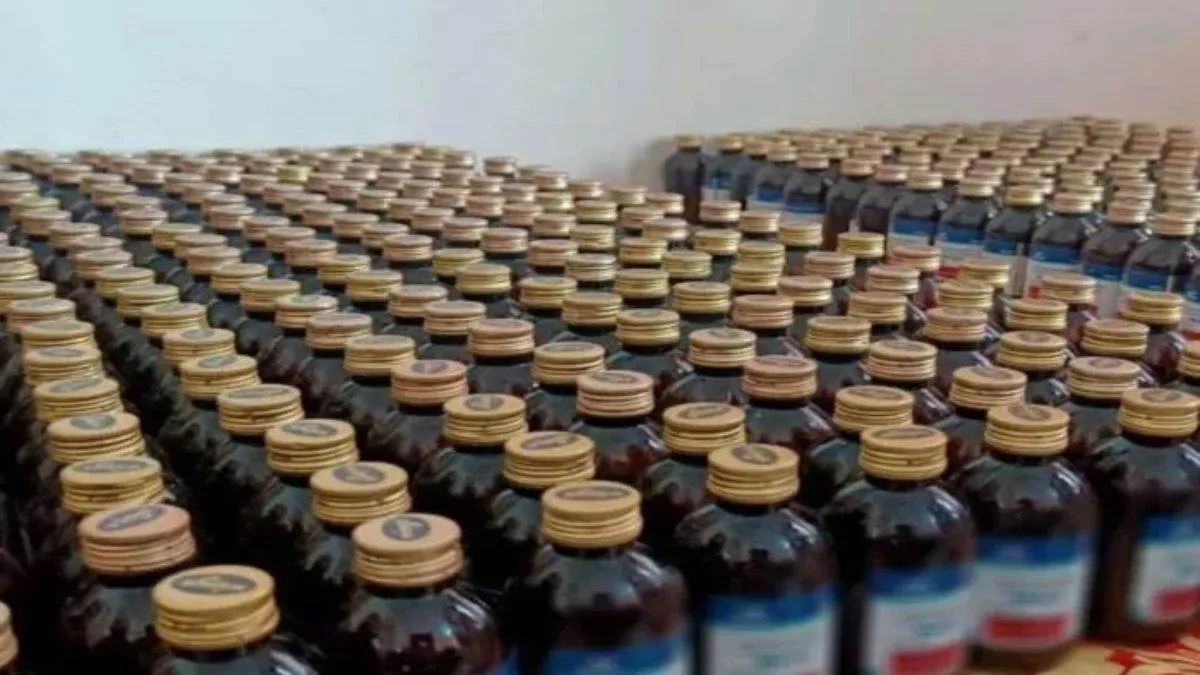- By Kamakshi Bishnoi
- Tue, 07 Oct 2025 11:28 AM (IST)
- Source:Jagran News Network
Following the deaths of children in Rajasthan and Madhya Pradesh due to Coldrif cough syrup, the Uttar Pradesh government has banned the sale of the syrup and is actively monitoring other cough syrups sold in the state. On Monday, under strict government orders, the Food and Drug Administration (FDA) collected 196 samples of cough syrup from more than 20 pharmaceutical companies for testing.
The samples, intended for children, will be tested for the presence of harmful substances, diethylene glycol and propylene glycol at a laboratory in Lucknow. Test results are expected within 15 days. During the ongoing campaign, no Coldrif syrup was found being sold in the state. However, syrups from companies including Srisan Pharma (Tamil Nadu), Yaka Life Sciences, and Apple Formulation were collected.
Samples were gathered from multiple districts, including 29 from Lucknow division, 15 from Agra, 25 from Meerut, and 20 from Jhansi. Drug inspectors also checked stocks with wholesalers, and sample collection continued late into Monday night. Drug Controller Shashi Mohan stated that testing will commence as soon as all samples reach Lucknow.
Notably, Coldrif syrup given to children in Rajasthan and Madhya Pradesh was found to contain 48.6 per cent diethylene glycol, far exceeding the standard limit of 0.10 per cent according to drug manufacturing norms.
Cough syrup is not administered to children in UP government hospitals. Dr Ratan Pal Singh Suman, Director General of Medical Health, stated that children under five are given antibiotics instead of cough syrup for coughs and colds. Ujjwal Kumar, Managing Director of UP Medical Supply Corporation Limited (UPMSCL), confirmed that no child-specific cough syrups, including Coldrif, are supplied to government hospitals.
The FDA will test the collected syrups against Indian Pharmacopoeia standards. Testing will use the Pharmacopoeia benchmarks rather than company standards to ensure compliance. From April to September this year, over 6,100 drug samples were tested in the state, with 15 found to be substandard and notices sent to the responsible companies.

